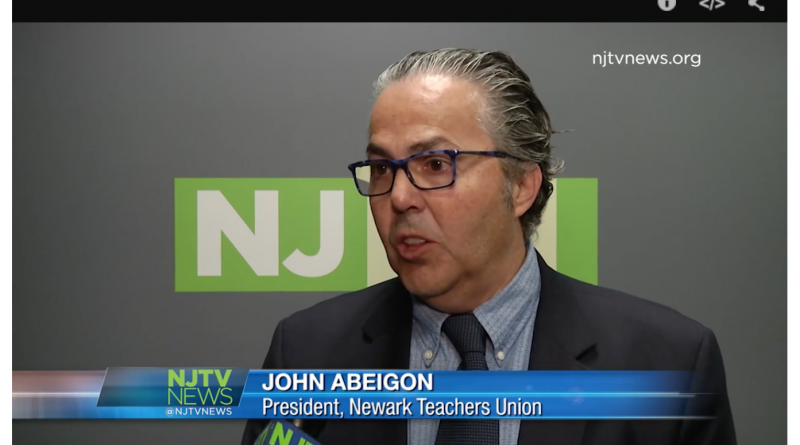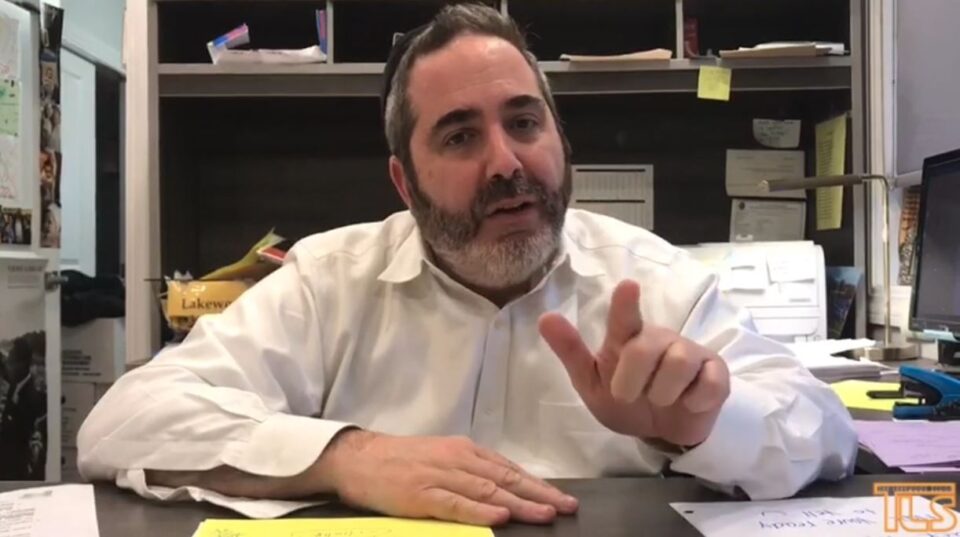QOD: Ross Douthat on Baltimore, Police Unions, and Teacher Unions
May 3, 2015QOD: N.Y. Times Debate on Standards and Assessments
May 4, 2015Sunday Leftovers
North Brunswick Schools Superintendent Brian Zychowski on why opting your children out of PARCC hurts kids and schools:
Parents need facts, not distortion. Fact: There’s real evidence that the new assessments, coupled with higher standards, are increasing and ensuring academic rigor. Fact: Taking tests is a part of life, and students will be assessed well beyond their educational journey. Fact: The consequences of refusing to take the PARCC are real. Students benefit from well-funded schools that offer resources because of local and federal support. These resources will be—and may already be—in jeopardy because of a small, vocal group whose interests are not reflective of preparing students for their future in a competitive global environment.
And that “small, vocal group” is currently trying to herd four bills through the State Legislature, conveniently listed on Save Our Schools-NJ’s website, as well as a related bill that would bar the N.J. D.O.E. from withholding state funding when schools’ PARCC participation rate falls below the federally-mandated 95%. NJEA just started running a new major market TV ad and bought a large radio ad package that will run from the May 4th at least through the 17th as they try to derail state efforts to elevate school accountability and raise student achievement levels.
New Jersey’s legislators might want to look west for guidance: the Colorado State Legislature, according to the Denver Post, just “voted 6-5 to defeat Senate Bill 223, which would have prevented penalties for teachers, principals, districts and schools because of students opting out of tests.”
The Star Ledger covers Senators Teresa Ruiz and Steve Sweeney’s proposal to maintain current influx of data into teacher evaluations at 10% instead of raising it to 20% next year. Ed. Comm. David Hespe said, “I think our commitment remains that we should allow folks to get comfortable before we raise the stakes.” But NJEA Pres. Wendell Steinhauer says he wants the Senate to pass a bill placing a three-year moratorium on using PARCC scores at all. (See above for list of four bills pushed by SOS-NJ and NJEA.) Also see coverage from NJ Spotlight, the Philadelphia Inquirer, and The Record.
From the Press of Atlantic City: Comm. Hespe says that withholding state aid from districts with high PARCC opt-out rates is a “last resort.”
The Newark School Advisory Board elected officers and swore in its three new members, all part of a slate backed by Mayor Ras Baraka. Today’s Star Ledger reports that Baraka is joining some community members in fighting Sup. Cami Anderson’s plan to implement “turnaround” school procedures, all which were negotiated under the 2012 Newark Teachers Union contract.
In Camden, “Sean Brown, a former Camden school board member and a longtime critic of the district’s leadership, this week began a grassroots campaign aimed at making the board an elected body, rather than a panel appointed by the mayor.” Brown says his biggest opponents aren’t school district officials but “city leaders.”
Andrew Bell, chief school support officer for the Camden City School District and former principal of H.B. Wilson Family School salutes his principals in the Courier Post: “This group deserves our applause. To be the principal of any school is a tall task. To be the school leader in a Camden City district school at this point in time is a Herculean feat. We certainly still have work to do, but during a time of great change our school leaders are demonstrating class, grit and an overwhelming focus on their students’ success.”
From the Star Ledger: ” State Senate President Stephen Sweeney does not leave room for doubt when he says the Democratic-led state Legislature will fully fund New Jersey’s public worker pension system next year. ‘We’re going to fund it,’ he said.” In a separate article, “[a] claim by public worker unions that they have a right to full pension funding challenges the core of New Jersey’s constitutional structure, attorneys for the state said in a brief filed Friday.”
Lakewood Update: Michael Azzara, state-appointed fiscal monitor for Lakewood Public Schools, announced at the last school board meeting that the only way to cover the costs of the current courtesy busing system would be to have a $2.5 million referendum. Lakewood spends about a fifth of its budget on bussing because about 20,000 students are transported daily to Jewish day schools. The public district’s 5,000 students, mostly economically-disadvantaged and Hispanic, are left with bupkis. Lakewood’s transportation deficit for next year is currently $5.5 million. Azarra has proposed tiering the busses but Jewish leaders are unhappy with that approach, which would save $3 million. The Lakewood Scoop says, “Askonim are continuing to work on the issue.” (Askonim are Jewish community leaders.) ” For more on Lakewood’s finances, see coverage from the Asbury Park Press.





1 Comment
Your posts on Lakewood miss some very critical facts about Lakewood and its finances.
Lakewood’s equalized tax rate is easily consistent with its Ocean County neighbors.
Lakewood's equalized tax rate is 1.01. All of Toms River Regional’s constituent towns have school tax rates ranging from .66 to .73. Howell’s is 1.03. Brick’s is .87. Jackson Township’s is 1.09.
So is Lakewood’s private school majority keeping tax rates low to starve the public schools? No more than its neighbors.
Toms Rivers’ per pupil spending is only $11,600. Lakewood’s per pupil spending is $12,500. Brick’s is $12,700. Jackson Township’s is $13,000. (JT gets much more state aid). Howell’s is much higher, at $14,400, but Howell gets much more state aid than Lakewood.
The Lakewood BOE has not been nearly as anti-tax as you have implied. Between 2012-13 and 2013-14 Lakewood increased its tax levy from $70.6 million to $77.1 million. That’s not the behavior of a BOE that wants to starve the schools. Of that increase only $500,000 went to transportation and $3+ million went to OOD. As you surely know, OOD is incredibly expensive statewide and the amount spent sometimes jumps dramatically.
Something you don’t address about Lakewood is that it also has a large senior population. Leisure Village, Leisure Village West, and Leisure Village East are active-adult communities with over 12,000 residents. I’m sure that this population isn’t as supportive of the public schools as public school parents are either. You should try to mention this fact.
Lakewood's public schools are 91% FRL-eligible, the highest percentage of FRL-eligible students of any non-Abbott. Despite that exceptional poverty/low-income rate, Lakewood only gets about $4,000 per student, much less than any Abbott. Jackson Township, whose students are not as poor, gets $5552 per student. Howell, likewise not nearly as poor, gets over $5000 per student. Lakewood is one of the only Bacon districts whose case for dramatically more aid I agree with.
Does Lakewood have very unusual demographics? Yes. Are Lakewood public schools badly administered? Yes. But are the schools underfunded? The schools could use more money, but the fault is partly the state's. Are Lakewood’s taxes and spending are similar to the rest Ocean County. Yes. If Lakewood were a regular town would its budget situation be better? Almost certainly not.
You have been unfair to Lakewood Some perspective is called for.